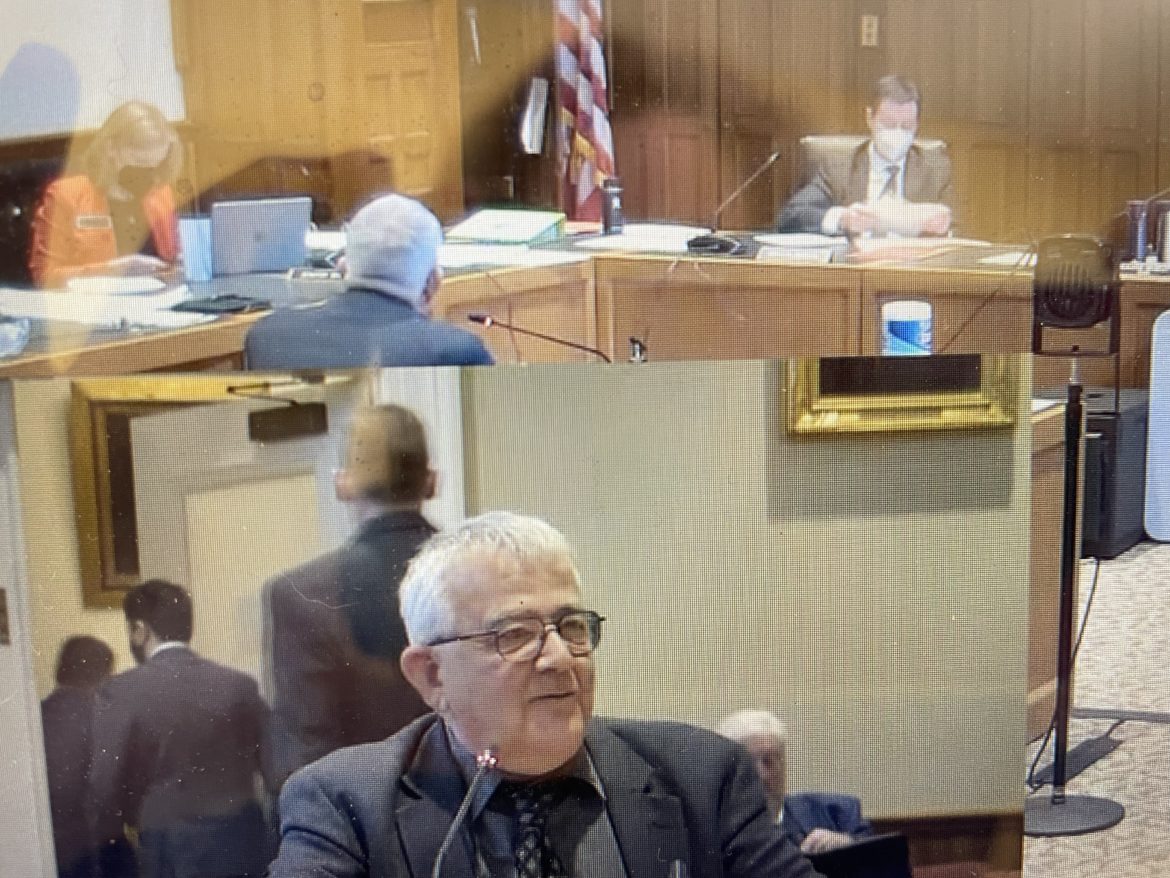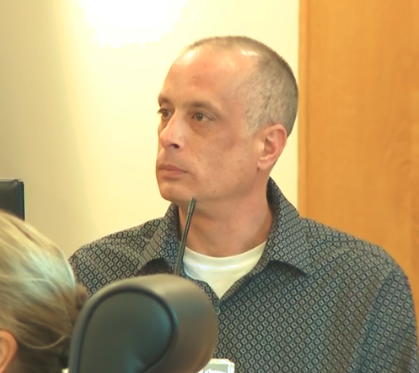By PAULA TRACY, InDepthNH.org
CONCORD – A bill offered by Republican senators that would prohibit the requirement of COVID-19 vaccinations as a condition of employment, education, access to businesses, and/or public venues received a hearing Wednesday before the Senate Health and Human Services Committee.
A business community leader called it “extremely bad public policy.”
If it becomes law, it would deny employers the ability to protect their staff if, for example, a more lethal new variant comes along and could mean the loss of millions of federal dollars for health care settings, including New Hampshire State Hospital and the Glencliff Home, the Senate Health and Human Services Committee was told.
In addition to the Business and Industry Association opposing the bill, it was also opposed by the New Hampshire Hospital Association, the NH Association of Counties, and the state Department of Health and Human Services.
Led by state Sen. Harold French, R-Franklin, Senate Bill 374 “prohibits a person from requiring that an individual who had COVID-19 or who is under the age of 18 receive a vaccination against the virus as a condition for employment, education, or access to businesses or entities open to the public.”
The bill also establishes an exemption as a matter of conscience against a vaccination mandate.
In addition, the bill establishes a criminal penalty and a private right of action for enforcement.
French said he offered the bill on behalf of tens of thousands of residents to keep the government out of the health care decision process.
“Businesses should not mandate health care decisions,” he stressed.
While he said he has heard hospitals and higher education institutions could lose federal funds if passed, he said fear should not drive policy.
He said he has spent his life buying and selling things and one thing that should not be for sale is health care decisions.
Paula Minnehan, senior vice president for government relations at the NH Hospital Association, opposed all four sections of the bill.
Long before the federal government’s requirements, she said the association adopted a consensus statement to vaccinate employees with exceptions for religious and medical reasons as a health and safety measure for all.
The vaccine, she said, provides important protections and she disagreed that fear of loss of federal funding is the only issue driving the opposition.
The term “conscientious objection and matter of conscience” has appeared in many other bills she noted and if this were to pass it would put patients, staff, and the public in danger.
“It could bankrupt the state of New Hampshire. The hospitals would probably go out of business. I am not exaggerating,” Minnehan testified.
Abby Rogers and Anne Marie Mercuri of the Department of Health and Human Services spoke in opposition to the bill.
Even if an individual experiences previous exposure, vaccines help to prevent a level of severity, Mercuri said.
The federal government could not only refuse to pay reimbursements of up to $46 million a year for both the Glencliff Home and New Hampshire Hospital, it could also lead to loss of accreditation and then potential insurance coverage issues, the committee was also told.
Sen. Jeb Bradley, R-Wolfeboro, asked if there are any plans of the department to mandate the COVID-19 vaccine for anyone under 18 and he was told “no.”
David Juvet, senior vice president for the Business and Industry Association which serves as the statewide chamber of commerce, focused on the bill’s impacts on employers.
He said few businesses in the state require vaccinations outside of the federal government’s edict and employers know about 25 to 30 percent of their workforce, if required to be vaccinated would quit, in a tight labor market.
The bill, he said, offers a solution to a perceived problem that does not exist.
There are some companies under federal mandates, like hospitals and nursing homes, he noted, which are required to have staff vaccinated but it soon could be those holding government contracts as well and possibly companies with more than 100 employees, which is still in litigation. While the courts struck down the emergency part of that later mandate, OSHA is still working on those rules.
Juvet said there is no federal recognition of an individual under 18 to be vaccinated or a conscientious objector status.
The bill would be putting those employers in a very awkward position of complying with state or federal law.
And he called it “cavalier” to say this is about financial fear.
“What they are afraid of is going out of business,” he said.
Kate Frey, vice president of advocacy of the non-profit New Futures, also opposed the bill.
The organization works to increase health equity in the state.
Frey said vaccines have worked well over time to help public health and the COVID-19 vaccine specifically is now helping help public health.
The organization is also concerned about the “conscientious objectors,” exemption in the bill, Frey said.
While medical and religious exemptions are necessary this added component would erode efforts to eradicate the virus, she said.
Kate Horrigan, executive director of the New Hampshire Association of Counties, spoke primarily on behalf of nursing homes within counties said she opposed the bill.
She said it would pit the state and federal laws against each other and homes would have to decide which law to follow. To follow this potential state law would have a financial impact since 50 percent of reimbursements come from the counties with the federal government paying the other half.
If the federal funding is pulled as a result of the law, the state would likely have to come up with that money or the nursing homes would close. The law states counties only have to pay 50 percent.
A woman who did not introduce herself and only described herself as a pharmacist for 40 years said she has a lot of questions and wonders how the committee would feel if they required vaccinations and found in the future that there were adverse health impacts.
She was the only person to testify in support of the bill other than the sponsor.
Louise Spencer, of Concord, speaking on her own behalf, asked the committee to imagine if they had a camp run for kids with cancer and they could not protect them because of this law? Or run a small medical practice that serves people in pain and that this could further their suffering by impacting them? Or like herself, having a brother who was immunocompromised needing to find a safe living placement?
“A much better approach is to allow for flexibility,” she said. “While we don’t understand the long-term consequences of the vaccine or the virus itself, she said, we do not know if it will reemerge.”
“We are dealing with something unknown and that is a challenge,” she said, adding “We are in this together….we need to recognize we are all doing the best we can to navigate this.”
And then, she wiped off the microphone and was the last speaker on the bill.
ss.





